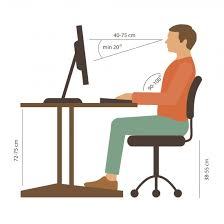Metabolic issues:
Sitting for long stretches can disrupt your body’s ability to regulate blood sugar, leading to increased risk of type 2diabetes.
Cardiovascular concerns:
Prolonged sitting is linked to poor blood circulation, which can contribute to high blood pressure and increased risk of heart disease.
Muscle weakness and bone density loss:
When you sit for extended periods, your muscles aren’t engaged, leading to decreased strength and potential bone loss.
Back pain and poor posture:
Improper sitting posture can strain your back muscles and contribute to chronic back pain.
Mental health impact:
Studies suggest a link between excessive sitting and increased risk of depression and anxiety.
Cancer risk:
Research indicates that prolonged sitting may be associated with a higher risk of certain cancers, like colon and endometrial cancer.
What you can do to mitigate the negative effects of sitting:
Break up sitting time: Set reminders to stand up and move around every 30 minutes.
Use a standing desk: Alternate between sitting and standing while working.
Incorporate light activity: Do simple exercises like leg stretches or arm circles while sitting.
Choose an ergonomic chair: Ensure your chair supports good posture with proper back and lumbar support.
Be mindful of posture: Pay attention to maintaining a straight back and relaxed shoulders while sitting.














Discussion about this post